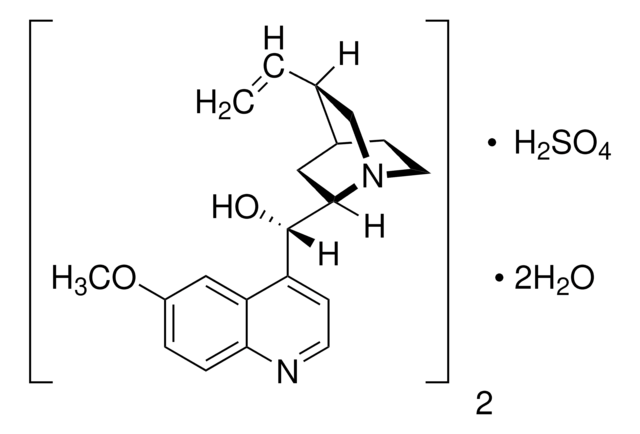P2880
Propionylthiocholine iodide
≥98%
Synonym(s):
(2-Mercaptoethyl)trimethylammonium iodide propionate
Sign Into View Organizational & Contract Pricing
All Photos(1)
About This Item
Linear Formula:
C8H18NOSI
CAS Number:
Molecular Weight:
303.20
EC Number:
MDL number:
UNSPSC Code:
12352100
PubChem Substance ID:
NACRES:
NA.22
Recommended Products
Quality Level
Assay
≥98%
form
powder
mp
200-202 °C (lit.)
storage temp.
−20°C
SMILES string
[I-].CCC(=O)SCC[N+](C)(C)C
InChI
1S/C8H18NOS.HI/c1-5-8(10)11-7-6-9(2,3)4;/h5-7H2,1-4H3;1H/q+1;/p-1
InChI key
BJQIXLJDWWVGAE-UHFFFAOYSA-M
Looking for similar products? Visit Product Comparison Guide
Signal Word
Danger
Hazard Statements
Precautionary Statements
Hazard Classifications
Eye Dam. 1 - Skin Irrit. 2 - STOT SE 3
Target Organs
Respiratory system
Storage Class Code
11 - Combustible Solids
WGK
WGK 3
Personal Protective Equipment
dust mask type N95 (US), Eyeshields, Gloves
Choose from one of the most recent versions:
Already Own This Product?
Find documentation for the products that you have recently purchased in the Document Library.
G Albendín et al.
Fish physiology and biochemistry, 43(2), 455-464 (2016-10-08)
The characterization of cholinesterase activity in brain and muscle of gilthead seabream was carried out using four specific substrates and three selective inhibitors. In addition, K
F Tecles et al.
Research in veterinary science, 70(3), 233-238 (2001-10-26)
Whole blood cholinesterase was measured using acetyl-, butyryl- and propionylthiocholine as substrates in 10 healthy adult dogs, cats, horses, pigs, goats, sheep and cows, in order to determine and characterise the cholinesterase activity in whole blood of the main domestic
Magda A Mohamed et al.
Comparative biochemistry and physiology. Toxicology & pharmacology : CBP, 146(3), 314-324 (2007-05-29)
Acetylcholinesterases (AChEs) have been estimated in the infective juveniles (IJs) of eight different strains of heterorhabditid nematodes. The enzyme content ranged from 45.6 to 421.3 units/10(5) IJs with specific activity 34.0 to 82.6 units/mg protein. The isoenzyme patterns revealed the
Manuela F Frasco et al.
Aquatic toxicology (Amsterdam, Netherlands), 77(4), 412-421 (2006-02-25)
The main purpose of this study was to describe the kinetic properties of the cholinesterase (ChE) enzyme present in the eyes of the prawn Palaemon serratus, an abundant, ecological and commercially relevant species of European coastal environments. The obtained results
Beatrice Gagnaire et al.
Chemosphere, 71(3), 553-560 (2007-11-14)
Anti-cholinesterase insecticides constitute a major portion of modern synthetic pesticides and the assessment of cholinesterase (ChE) inhibition is widely used as a specific biomarker for evaluating the exposure of non-target organisms to these pollutants. However, most studies on this biomarker
Our team of scientists has experience in all areas of research including Life Science, Material Science, Chemical Synthesis, Chromatography, Analytical and many others.
Contact Technical Service








